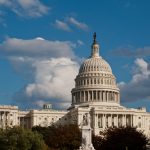 On January 31, the Intellectual Property Owners Association (IPO) released a proposed revision to the section of the Patent Act that defines the subject matter eligible for patenting.
On January 31, the Intellectual Property Owners Association (IPO) released a proposed revision to the section of the Patent Act that defines the subject matter eligible for patenting.
IPO’s proposed text for an amended 35 U.S.C. § 101 can be downloaded here.
The proposal returns patent law to the long established practice of analyzing the “claimed invention as a whole” rather than breaking the invention into parts and analyzing the parts separately. Breaking an invention into component parts has allowed courts to decide that oil rigs, MRI machines, and detecting fetal abnormalities are simply not the kinds of technologies that should be patentable.
The historical and legal importance of considering inventions as a whole was the subject of a Supreme Court amicus brief by 19 law professors, led by CPIP’s Adam Mossoff and joined by other CPIP Senior Scholars and renowned academics. The brief in support of the petitioner in Sequenom v. Ariosa showed how analyzing the claimed invention as a whole is necessary to prevent indeterminacy from ruining patent law. Without the requirement to analyze patents as a whole, famous patents including the telegraph and telephone would be declared ineligible for patenting. The approach advocated for in the amicus brief is the same one adopted in the proposed statutory revision.
IPO’s proposal also codifies and limits the exceptions to patentability that have led to substantial uncertainty about the eligibility of software patents. I have discussed why software patents are important and the need for a legislative fix to this uncertainty that confirms the eligibility of software patents. The IPO proposal adopts a clear and practical legislative fix by limiting the exceptions to prevent patenting of subject matter that only “exists in nature independently of and prior to any human activity, or exists solely in the human mind.”
The proposed revision comes amidst a growing chorus of calls for legislative action to bring clarity to § 101. In response to a call for comments on subject matter eligibility from the USPTO, numerous organizations such as AIPLA, ABA, and PhRMA called for § 101 to be revised to reflect the need to protect innovation.

